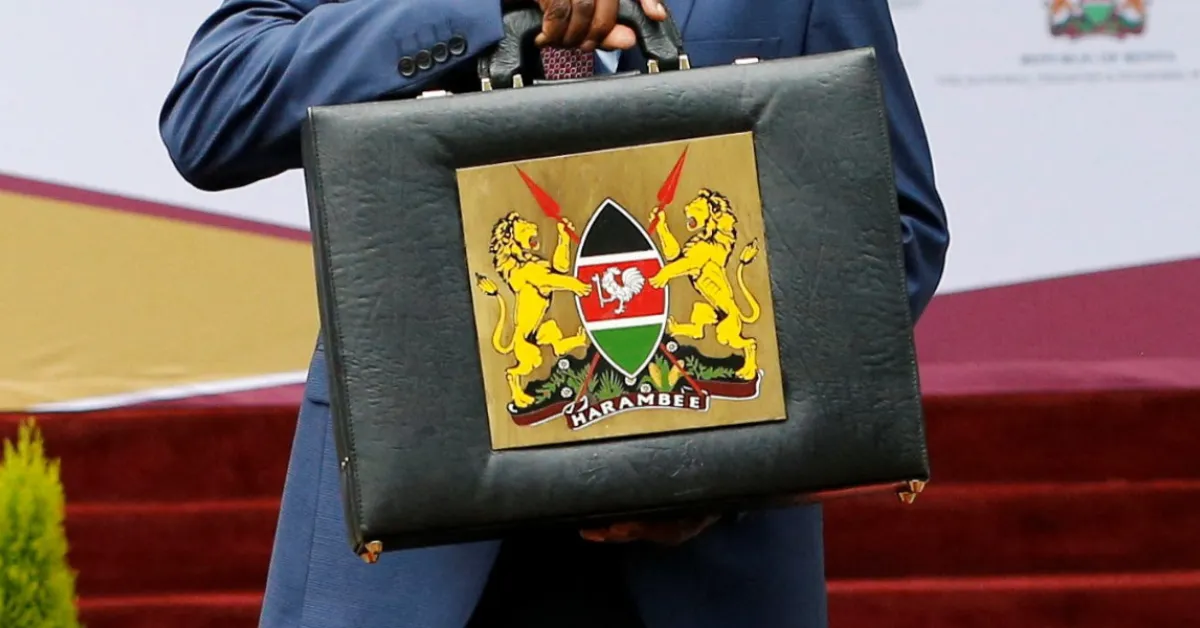Kenya’s Finance Bill 2025 Introduces Hidden Taxes

The Kenyan government is navigating a delicate balance with its proposed Finance Bill 2025, a legislative package designed to bolster state revenue while striving to avoid the public backlash that engulfed its predecessor.
Presented as a more calibrated approach than the controversial Finance Bill 2024, which triggered widespread protests and tragic loss of life, the new measures introduce a series of tax adjustments that could significantly impact ordinary Kenyans, particularly those in vulnerable economic positions. At the heart of the bill is a sweeping overhaul of the Value Added Tax (VAT) Act, which entails reclassifying certain goods from zero-rated to exempt status. This seemingly technical adjustment has the potential to drive up costs across multiple sectors.
Currently, manufacturers of zero-rated products—including essential medical supplies, agricultural inputs, and locally assembled mobile phones—are entitled to VAT refunds on the taxes they pay for raw materials and production. The shift to exempt status would strip businesses of this ability, potentially forcing them to pass the additional expense on to consumers. The implications of these VAT revisions are particularly acute for critical industries such as tea and coffee, where packaging materials are being reclassified as exempt.
This change could severely impact Kenyan farmers and exporters, who rely on competitive pricing in international markets. Increased costs could undermine their ability to compete globally, threatening a vital sector of the Kenyan economy.
Similarly, the tax shift could disproportionately affect lower-income families by raising the cost of healthcare and food production, where affordability is paramount. The government's reasoning behind these VAT revisions centres on its broader strategy to reduce tax expenditures, which are revenue losses due to exemptions and refunds.
The Treasury has argued that some businesses exploit VAT refunds without passing the savings on to consumers, leading to inefficiencies in tax collection. In 2023, tax expenditures surged to KSh510.56 billion, with VAT refunds constituting a significant portion of this figure. While authorities aim to close loopholes by limiting refunds, critics warn that the unintended consequence may be a higher financial burden on citizens, particularly those least able to afford it.
Beyond VAT, the Finance Bill 2025 proposes extending the time frame for the Kenya Revenue Authority (KRA) to process refunds, increasing it from 90 days to 120 days. This extension could pose significant challenges for small businesses, which often rely on timely tax reimbursements to maintain liquidity. Delays in receiving refunds could hinder their ability to replenish stock, expand operations, or manage short-term expenses, potentially placing them in a precarious financial position.
The measure raises concerns about its potential to stifle the growth and stability of small and medium-sized enterprises (SMEs), which are a critical engine of the Kenyan economy. Another controversial aspect of the bill is the proposed taxation of goods and services linked to aid-funded projects. Traditionally, projects supported by concessional loans or grants from foreign governments and development organisations have benefited from VAT exemptions. However, the new bill introduces VAT on lubricants and fuels used in these initiatives.
This move could inflate costs and potentially undermine Kenya's ability to attract and execute donor-supported projects, which play a vital role in infrastructure development, healthcare, and other essential sectors. The potential impact on foreign aid and development initiatives raises concerns about the long-term economic consequences. Perhaps one of the most perplexing aspects of the Finance Bill 2025 is the inclusion of a 16 percent VAT charge on construction materials for affordable housing projects.
The affordable housing program, a flagship policy of President William Ruto's administration, aims to increase home ownership among lower-income citizens. By increasing the cost of building materials, the policy risks undermining its own mission, effectively making homes less accessible to the very people the initiative was intended to serve. This apparent contradiction has drawn criticism from experts and industry stakeholders, who question the logic of imposing additional costs on a program designed to alleviate housing shortages for low-income families.
The Finance Bill 2025 also signals heightened scrutiny over Kenya's rapidly growing digital lending sector, with proposed tax measures targeting foreign lenders operating in the country. A new excise duty would be applied to digital financial services offered by non-resident entities, which provide credit via online platforms but are registered outside Kenya. This move aligns with broader efforts to standardise the taxation of digital services, ensuring foreign firms do not enjoy tax advantages over local providers.
While some view this as a step toward fair competition, others worry about the consequences for Kenyan borrowers, particularly those dependent on digital credit for urgent financial needs such as school fees, rent, and small business funding. Financial analyst Dr. Lyla Latif suggests that the expansion of excise duty on digital loans is likely to increase borrowing costs, making credit less accessible to lower and middle-income earners. In a country where the use of digital loans has been steadily rising—668,491 Kenyans reportedly accessed credit through mobile apps in 2024, up from 583,263 in 2021—the impact could be significant.
If borrowing rates rise sharply, it could push many further into financial exclusion, exacerbating existing inequalities. This raises concerns about the potential for the tax measures to disproportionately affect vulnerable populations who rely on digital credit for essential needs. While proponents argue that taxing foreign digital lenders helps level the playing field for local providers, the broader implication is that Kenyans who rely on quick and flexible access to credit may find themselves trapped in a cycle of rising fees and diminishing options.














Add new comment